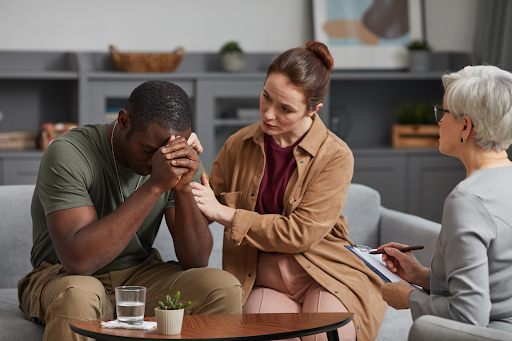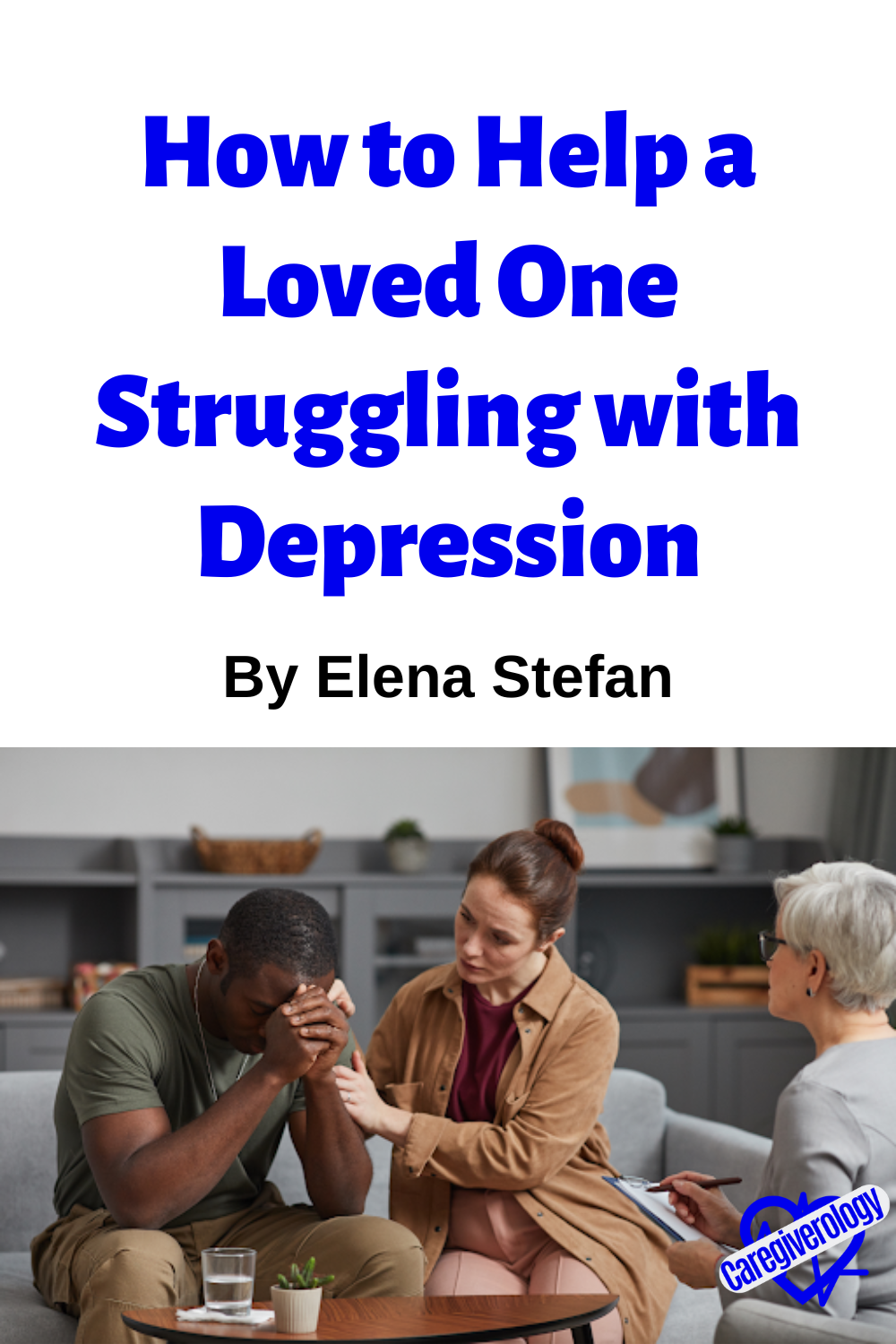How to Help a Loved One Struggling with Depression

Depression. It’s astoundingly common in the US. According to Mental Health America, major depression affects as many as 21 million American adults each year. With this being the case, it will come as no surprise that even if you’re not one of the millions of Americans experiencing depression yourself, it’s likely that someone close to you is.
Here’s how to recognize and identify the signs and symptoms of depression, offer emotional support, and most importantly, help your loved one accept and seek out the help they need to get through their depression.
Learn About the Signs and Symptoms of Depression
There are many different types of depression - namely, clinical or major depression, disruptive mood dysregulation disorder (DMDD), seasonal affective disorder (SAD), pre, post, or antenatal depression, and premenstrual dysphoric disorder (PMDD) - to name just a few. Despite this, each of these types of depression is usually characterized by similar symptoms. Some of the common signs that could indicate your loved one is depressed can include:
- A bleak outlook on life, helplessness, and hopelessness.
- Extreme negativity, apathy, and low moods.
- A lack of physical energy, and experiencing lethargy and sluggishness instead.
- Reduced pleasure in activities that would usually be enjoyed.
- Changes to sleep patterns, such as insomnia or oversleeping.
- Changes to eating patterns, such as overeating or loss of appetite.
- Feelings of worthlessness, guilt, or low self-esteem.
- Self-loathing and negative self-talk.
- Dwelling on past events or excessively worrying about them.
- Black-and-white, all-or-nothing thinking, catastrophizing, and overgeneralization.
- An inability to focus or concentrate.
- Feelings of anger and irritability, often leading them to lash out at those around them.
- Physical manifestations, such as unexplained bodily aches and pains.
Let Your Loved One Talk Through Their Feelings With You
The truth? There is a great deal of stigma around issues of mental health. Letting your loved ones talk candidly about how they’re feeling, and what they’re experiencing, can help them feel accepted, and that they are not alone. Having open conversations about their symptoms and offering nonjudgmental support is central to this.
Of course, it can be easy to dismiss depression - you may find yourself telling your loved one to ‘snap out of it’, or to ‘stop being lazy’. Remember, depression is not only characterized by low moods, it can also result in physical manifestations such as lethargy, reduced energy levels, and a severe lack of get-up-and-go. Some days, your depressed loved one may even find it hard to find the motivation to get out of bed. These are the days when judgment and ‘tough love’ won’t help - instead, try to be sensitive to what they’re going through, and how you can support them.
Encourage Your Loved One to Seek Professional Help
Psychotherapy can provide a great deal of support to individuals experiencing depression. Encourage your loved one to seek a referral for a licensed counselor from their doctor, or an online MSN FNP-accredited family nurse practitioner.
As part of therapy treatment, your loved one’s counselor will likely draw on tried and true strategies that have been proven to help ease the symptoms of depression. In conjunction with antidepressant medication, some of the most commonly used psychotherapies for depression include:
Cognitive Behavioral Therapy (CBT)
CBT teaches individuals who are experiencing depressive symptoms to reframe their thinking. Often, when we are depressed, we can be guilty of catastrophizing, overgeneralizing, all-or-nothing, or black-and-white thinking. CBT helps patients overturn these extremes by teaching them how to develop more balanced thinking patterns. It also shows patients how to combat negative thought patterns through rationalization and positive self-talk.
Psychodynamic Therapy
Drawing on elements of psychoanalysis, this type of therapy suggests that depression can be unconsciously caused by the past traumatic events we have suppressed, sometimes since childhood. By teaching patients to confront these traumas head-on, and learn how to navigate how they can trigger their depression, psychodynamic therapy can be significantly healing for many patients.
Interpersonal Therapy
If we are feeling socially isolated, our feelings of depression can be exacerbated. Interpersonal therapy helps isolated individuals learn how to reconnect socially, and to focus on their relationships with others. This can help patients develop their social support networks, an essential element of recovery from depression.
Thank you Elena Stefan for contributing this article.
Mental Health and Support Articles
From How to Help a Loved One Struggling with Depression to Home
Recent Articles
-
Common Truck Crash Injuries and Legal Remedies - Caregiverology
Jul 19, 25 10:49 AM
Known for its sun-drenched beaches, vibrant arts scene, and bustling maritime industry, Fort Lauderdale is a city that sees heavy traffic both on its roads and at its busy port. Unfortunately, with th… -
Why Expert Legal Help Matters After Serious Injury - Caregiverology
Jul 19, 25 10:35 AM
In Houston, over 67,600 car crashes occurred in 2023, resulting in 290 fatalities and 1,612 serious injuries. That’s roughly 185 accidents every day. -
How Life Care Planners Support Injury Recovery - Caregiverology
Jul 19, 25 10:18 AM
In Los Angeles, life care planners play a vital role in supporting injury recovery, especially for individuals facing catastrophic injuries such as traumatic brain injuries or spinal cord damage.





New! Comments
Have something to say about what you just read? Leave a comment in the box below.